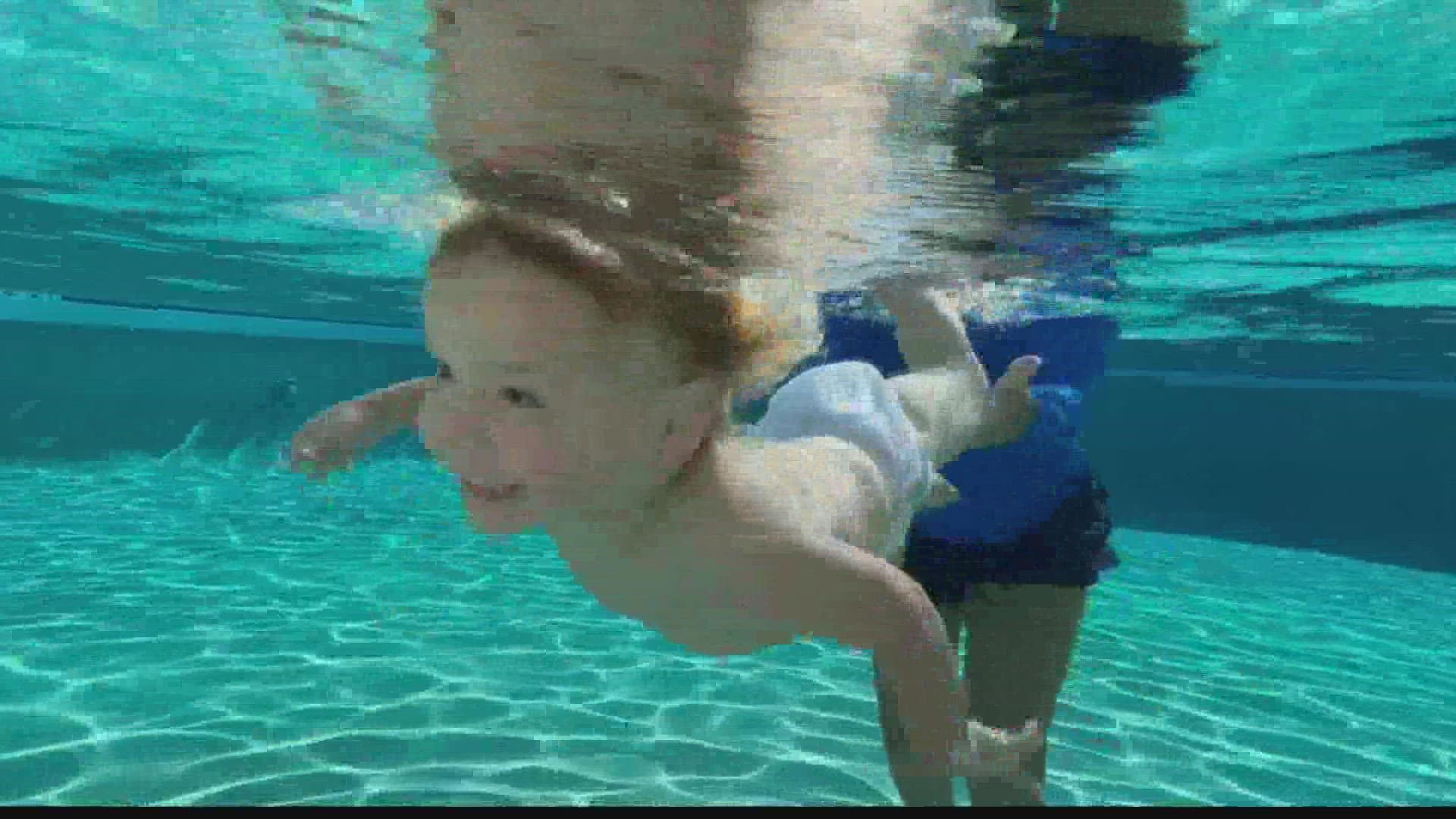JACKSONVILLE, Fla. — Ahead of a hot summer, swim instructors and experts want to make sure everyone knows swim safety tips, especially during National Water Swim Safety Month, which is May.
According to the Florida Department of Children and Families, Florida reported the most child drownings in 2021 since at least 2009 with 98. Six of those children drowned in Duval County.
“Drowning is very much a preventable, or at least you have the ability to do proactive things to prevent your children from getting into that situation and one of them is ISR technique,” Infant Swimming Resource instructor Amy Pritchett said.
Pritchett recommends children start ISR lessons around 12 to 24 months old, but she said they can start as early as six months.
“We teach children how to swim, but at the same time, it’s all based on safety first, so just like you saw in observing this lesson, if he steps off the steps, we teach him to go back and get the step. Don’t rely on a person," she said.
Two-year-old Carter Cowart started ISR lessons when he was nine months old.
"ISR is a lifesaving skill and I think it’s the best gift you can give your child, to be able to save themselves in the case of an emergency," Casey Cowart, Carter's mother, said.
Casey Cowart said it's not just important for her son to know how to swim because they have a pool, but also because drowning hits close to home.
“This year, we actually had someone in the family drowned, unfortunately, a five-year-old little boy about two months ago, so I would shout it from the rooftops now please make sure you’re doing everything you can to protect your children," Cowart said.
Pritchett said it's important for anyone, no matter the age, to learn how to swim.
“For parents, constant eyes on [children]. For adults that don’t know how to swim, there are swimming programs for adults as well, and I can’t emphasize enough, if you live in Florida, if you live in an area that has water at every turn, you may not have it in your backyard, but you have retention ponds. You have the ocean. You have the rivers. You have the next door neighbors’ pools, so there’s no reason why being part of a swimming program should not be part of a necessary need especially for children, but for adults as well," Pritchett said.
Michael Haggard, who's a part of the National Drowning Prevention Alliance and a managing partner at The Haggard Law Firm, agrees with Pritchett. He also said it takes everyone working together to avoid drownings.
“Every apartment complex has to have a fence around it, around the pool, with self-closing and self-latching gates and locks," he said. "That is incredibly important because that's what we see time and time again, that kids get through fences that are not up to code," he said.
"Then the problem in Florida is we have so many lakes, retention ponds and rivers that don't have any fencing any gating and have steep slopes, and we lose so many children to that throughout the year," he said.
Haggard has represented more than 100 families who have lost children due to drowning. More than 10 years ago, he helped pass the Virginia Graeme Baker Pool and Spa Safety Act that requires all pool and spa equipment equipped with entrapment-prevention technology.
He said it's up for reauthorization this year.
"Business owners and premises owners have to know this is swim season. So, apartments have to double-check their pools, their gates. Now we have all these Airbnbs in Florida, you know, and people that own those and manage those have to make sure the pool is safe. Hotels have to make sure they don't have an issue where a toddler can walk through the lobby and get out to a pool that does not have a lifeguard," he said.
So far already this month, there have been at least two children who drowned on the First Coast.

